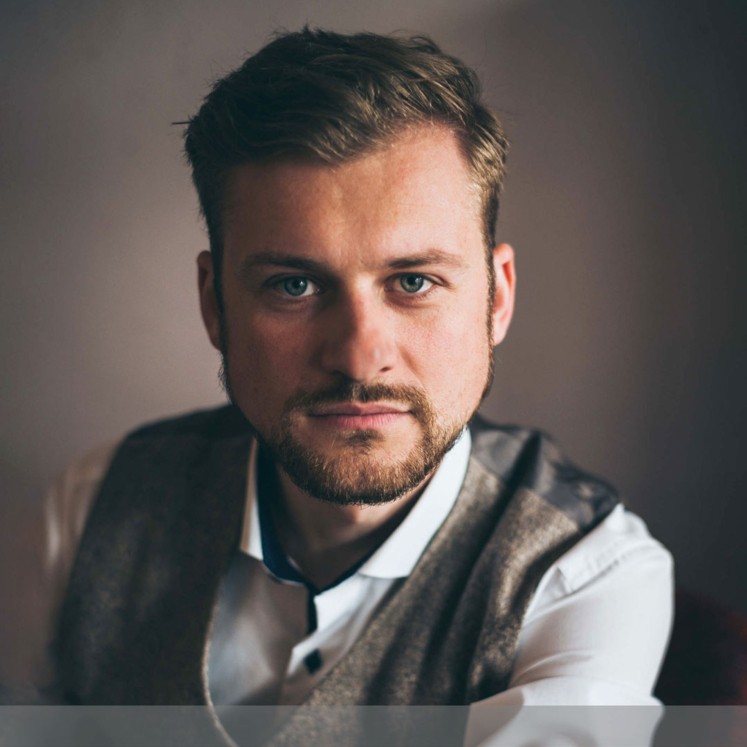
Liederabend
While the Lieder of Anton Bruckner, despite well-attested reports of his affinity to the genre, can be euphemistically described as modest in number - apart from a few student works he completed just six songs with piano accompaniment – a look at those composers who in the succeeding generations immersed themselves in the works of the great symphonist reveals numerous masterpieces in the Lieder genre. Beginning with Gustav Mahler and Alexander von Zemlinsky, who experienced Bruckner personally during their studies at the Conservatory of the Society of Friends of Music in Vienna, the young and internationally successful baritone Ludwig Mittelhammer and his renowned accompanist Helmut Deutsch explore this repertoire, which is scarcely represented in today's concert programmes though fully worthy of rediscovery. Alongside songs from the first decade of the 20th century by composers working in Vienna - Karl Weigl, Joseph Marx and Egon Wellesz – there are also works by Richard Wetz, a composer who even more than his contemporaries identified with the music of Bruckner. These will be heard for the first time ever in the Brucknerhaus.
Karl Weigl (1881–1949)
Pfingstlied, aus: Fünf Lieder, op. 3, Nr. 1 (1903)
„Der Tag klingt ab“, aus: Sieben Gesänge, op. 1, Nr. 3 (1903)
Schmied Schmerz, aus: Sieben Gesänge, op. 1, Nr. 7 (1903)
Wanderers Nachtlied, aus: Sieben Gesänge, op. 1, Nr. 5 (1904)
Ein Gleiches, aus: Sieben Gesänge, op. 1, Nr. 6 (1904)
Alexander von Zemlinsky (1871–1942)
Altdeutsches Minnelied, Nr. 2 aus: Lieder, op. 2, Heft 2 (1895–96)
Heilige Nacht, Nr. 1 aus: Lieder, op. 2, Heft 1 (1895–96)
Vor der Stadt, aus: Lieder, op. 2, Heft 1, Nr. 7 (1895)
„Und hat der Tag all seine Qual“, Nr. 2 aus: Turmwächterlied und andere Gesänge, op. 8 (1898–99)
Entbietung, aus: Irmelin Rose und andere Gesänge, op. 7, Nr. 2 (1898)
Selige Stunde, Nr. 2 aus: Ehetanzlied und andere Gesänge, op. 10 (1899–1901)
„Meine Braut führ’ ich heim“, Nr. 4 aus: Ehetanzlied und andere Gesänge, op. 10 (1899–1901)
Gustav Mahler (1860–1911)
Lieder eines fahrenden Gesellen (1884–85, 1890–93)
Richard Wetz (1875–1935)
Frühlingsnacht, aus: Sechs Lieder, op. 15, Nr. 3 (1903)
„Schöne Nacht“, aus: Fünf Gesänge, op. 20, Nr. 5 (1905)
An eine Rose, aus: Sechs Lieder, op. 15, Nr. 1 (1903)
Wandern, aus: Fünf Gesänge, op. 18, Nr. 4 (1902)
Die Muschel, aus: Fünf Gesänge, op. 9, Nr. 2 (1900)
Volkslied, aus: Fünf Lieder, op. 24, Nr. 5 (1906)
Egon Wellesz (1885–1974)
Lieder aus Wien, op. 82a (1959)
Joseph Marx (1882–1964)
An einen Herbstwald (1910)
Windräder (1906)
Wanderers Nachtlied (1906)
Japanisches Regenlied (1909)
Waldseligkeit (1911)
Warnung (1909)
Selige Nacht (1912)
Der Ton (1909)
Ludwig Mittelhammer | Baritone
Helmut Deutsch | Piano